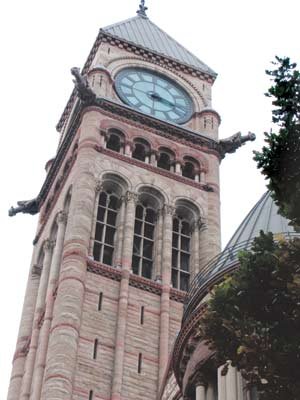
Rating: NNNNN
|
Take a look at where you’re dropping your cash this season of ka-ching. Some retailers disclose how and from whom they get their clothes – and others keep it a closely guarded secret. Here’s who rates and who sucks, according to the Ethical Trading Action Group. |
|
 |
|
| Levi’s leads the pack | Nike cleans up its act – mostly |
|
Levi’s was the first major brand to adopt a code of conduct for supply factories in 91, and the company has a director who makes sure code is followed it trains factory managers in labour rights and supply factories are monitored and audited independently and with some input from NGOs. Also just started disclosing its factory locations. Docked for not sharing results of audits with the public. Grade: B- |
Industry leader in lifting veil of secrecy about the locations of factories producing the Nike brand, in the process inviting greater public scrutiny. Also appointed a director of corporate responsibility, and trains factory workers and managers in labour rights. Yet, like almost all companies listed here, it violates international labour standards by making workers toil 60 hours a week and work mandatory overtime. Grade: C+ |
 |
 |
| Filling the Gap | Climbing Mountain Equipment Co-op |
|
Gap’s a good example of how problems can persist even with decent disclosure practices. In its 2004 social responsibility report, just under half its factories reported a drop in compliance. Still, Gap is the only major retailer to systemtically use local NGOs and labour orgs to verify labour audits of its factories. Grade: C+ |
MEC doesn’t disclose the locations of its factories, which is curious given its ethical image. But it does have a manager of social compliance and two board of director committees that oversee labour standards. Audits factories with third-party input, and discloses some factory findings, but MEC code fails to protect freedom of association. Grade: C- |
 |
 |
| Hudson’s Bay keeps bad company | Roots not digging deep enough |
|
Dogged by activists for labour abuses in Lesotho,HBC finally coughed up a code of conduct. Canada’s oldest company’s transparency is at least improving each year. But still allows 14-year olds to work in its factories and imposes a seven-day workweek at busy times. Grade: D- |
After a couple years of protests, Roots is divulging a little more info about its labour practices. But it still doesn’t disclose the locations of those factories or their auditing results. The company isn’t exactly a leader on the code of conduct front either. It only bars discrimination that is outright unlawful in a given country. Grade: D- |
 |
 |
| La Senza’s silent treatment record | Wal-Mart’s rock-bottom |
|
La Senza was slagged for cutting and running from a union-bashing factory instead of pressuring it to improve conditions. It’s since developed a code of conduct that looks great on paper (except for the part about allowing a seven-day workweek in busy periods), but refuses to release any more info about its practices or factory locales. Grade: D- |
While ETAG’s report card gave Wal-Mart slightly higher scores in transparency than La Senza and Roots, recent news reports about children working in two Bangladeshi factories raise serious questions.Wal-Mart says it wasn’t aware of the problems, but its own code allows a 72-hour workweek and 14-year old workers. Grade: D- |
 |
 |
| The store you can’t trust | Stonewalling public scrutiny |
|
Despite years of shareholder efforts to get Canada’s number-one clothing retailer to improve reporting on labour rights, Sears keeps shooting them down. No evidence that it’s auditing factories for labour standards, or dealing with factories that fail to comply with its code. Sears won’t protect the right of workers to organize, lets 14-year-olds work, and doesn’t require one day off a week for workers. Grade: E |
A whack of companies scored zeros in ETAG’s report because they fail to share any information with the public about their labour practices. They include Le Chateau, Forzani Group (public company owns Sport Chek, Sport Mart, Coast Mountain Sports, National Sports), Jacob, Reitmans (public company also owns Smart-Set, Addition-Elle, Thyme Maternity, Penningtons), Tristan, International Clothiers, Polo Ralph Lauren and Harry Rosen. Grade: F |












